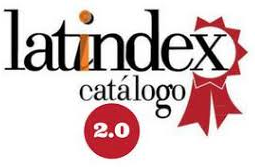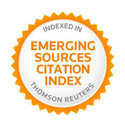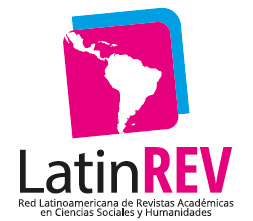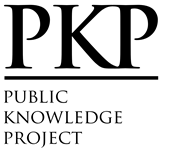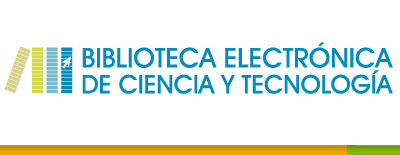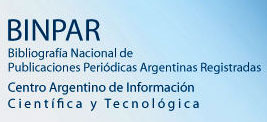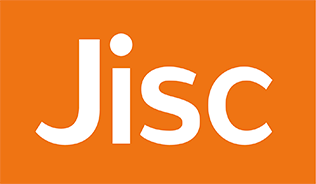Social complexity and information quality
Towards a “glocal” journalism
Abstract
In the so-called information (and knowledge) society, quality information is, more than ever, an indispensable and inalienable public good for any citizen who wants to exercise his or her civic and political rights. Because of this, we need to have reliable (rigorous and autonomous) communication media, which disseminate relevant and quality information. But journalism does not only depend on structural questions, but also on the conditions and limits (such as simplification, for instance) that mark professional praxis, either of the political or the socioeconomic type. Social complexity requires a treatment of information that might explain reality, which implies taking advantage of the scientific method while, at the same time, practicing a kind of journalism that relates dialectically to global and local spheres.
Downloads
References
Augé, M. (2001). Ficciones de fin de siglo. Barcelona: Gedisa.
Borjesson, K. (2002). Into the Buzzsaw: leading journalists explore the myth of a free press. Amherst: Prometheus Books.
Brooks, B. S. (1997). Journalism in the information age: a guide to computers for reporters and editors.
Boston: Allyn and Bacon.
Bueno, G. (2002). Telebasura y democracia. Barcelona: Ediciones B.
Cayrol, R. (1997). Médias et démocratie: la dérive. París: La Bibliothèque du Citoyen, Presses de Sciences Po.
Cubells, M. (2003). ¡Mírame, tonto! Barcelona: Robinbook.
Cué, C. E. (2004). Pásalo. Madrid: Península.
Debord, G. (1976). La sociedad del espectáculo. Madrid: Castellote.
Fraguas de Pablo, M. (1985). Teoría de la desinformación. Madrid: Alhambra.
Garrison, B. (1995). Computer-assisted reporting. Hillsdale: LEA.
Glasser, T. L. (ed.) (1999). The idea of public journalism. Nova York: The Guilford Press.
Gómez Mompart, J. L. (2001). Periodismo de calidad para una sociedad global. Pasajes 7, p. 25-35.
Gómez Mompart, J. L. (2003). “El periodismo después del fin del periodismo”. En: Company, A. et al. (eds.). Aportacions de la comunicació a la comprensió de la història del segle XX: la comunicación audiovisual en la història (p. 255- 267). Palma: Universitat de les Illes Balears.
Gómez Mompart, J. L. et al. (eds.). (2013). La calidad periodística: teorías, investigaciones y sugerencias profesionales. Castelló de la Plana: Publicacions de la Universitat Jaume I; Barcelona: Universitat Autònoma de Barcelona, Universitat Pompeu Fabra; València: Universitat de València.
Iorio, S. H. (ed.) (2004). Qualitative research in journalism: taking it to the streets. Mahwah (NJ), London: Lawrence Erlbaum Associates.
Jowett, G. S. & O’Donnell, V. (1999). Propaganda and persuasion. London: Sage.
Kovach, B. & Rosenstiel, T. (2003). Los elementos del periodismo. Madrid: Santillana.
Labasse, B. (1997). Repenser la information?: vieux schémas et nouveaux enjeux. Les Cahiers du Journalism 3, p. 26-35.
MacArthur, J. R. (2002). El segundo frente: censura y propaganda en la Guerra del Golfo. Madrid: C. de Langre.
Marcuse, H. (1969). El hombre unidimensional: ensayo sobre la ideología de la sociedad industrial avanzada. Barcelona: Seix Barral.
Martínez, G. (2004). Pásalo. Barcelona: Debolsillo.
Mills, C. W. (1981). La imaginación sociológica. México D.F.: Fondo de Cultura Económica.
Morin, E. (1994). Introducción al pensamiento complejo. Barcelona: Gedisa.
Morresi, E. (2003). Etica della notizia: fondazione e critica della morale giornalistica. Bellinzona: Casasgrande-Saggi.
Noelle-Neumann, E. (1995). La espiral del silencio: opinión pública: nuestra piel social. Barcelona: Paidós.
Partal, V. & Otamendi, M. (2004). 11-M: el periodisme en crisi. Barcelona: Ara Llibres.
Parreño Rabadán, M. (2013). “La argumentación de los periodistas sobre la calidad del periodismo”. En: Gómez Mompart, J. L. et al. (eds.). La calidad periodística: teorías, investigaciones y sugerencias profesionales (p. 105-118). Castelló de la Plana: Publicacions de la Universitat Jaume I; Barcelona: Universitat Autònoma de Barcelona, Universitat Pompeu Fabra; València: Universitat de València.
Pásalo (2004). Madrid: Traficante de los Sueños.
Pasolini, P. P. (1983). Escritos corsarios. Barcelona: Planeta.
Ramoneda, J. (2 004). “El poder está en otra parte”, El País, Madrid, 5 de septiembre.
Robert, B. (1997). Médias et situations de crise: invitation à un partage d’expérience. Les Cahiers du Journalism 3, p. 70-77.
Rodríguez, P. (2004). El 11-M, mentira de Estado. Barcelona: Ediciones B.
Rousseaux, N. (1996). Causes et solutions endògenes à la crise du journalisme écrit généraliste. Les Cahiers du Journalism 2, p. 166-175.
Schwartzenberg, R.-G. (1977). L’État spectacle: essai sur et contre le star system en politique. Paris: Flammarion.
Tuchman, G. (1983). La producción de la noticia: estudio sobre la construcción de la realidad. México D.F.: Gustavo Gili.
Verdú, V. (2003). El estilo del mundo: la vida en el capitalismo de ficción. Barcelona: Anagrama.
Vidal-Beneyto, J. (2004). “Cultura, saber social y pedagogía ciudadana”. El País, Madrid, 31 de julio.
Volkoff, V. (1999). Petite histoire de la désinformation: du cheval de Troie à internet. Mónaco: Editions du Rocher.
Watine, T. (1997). Journalisme et complexité. Les Cahiers du Journalism 3, p. 14-25.
Wolton, D. (1999). Sobre la comunicación: una reflexión sus luces y sus sombras. Madrid: Acento.
Copyright (c) 2013 Josep Lluís Gómez Mompart

This work is licensed under a Creative Commons Attribution-NonCommercial 4.0 International License.
The authors retain the copyright and guarantee the journal the right to be the first publication of the work. In case that a translation of the article already published in Austral Comunicación can be published in another journal, it is requested to record the original publication in the translated version.
The license used is CC BY-NC-SA, which allows sharing (copying and redistributing the material in any medium and format) and adapting (remixing, transforming and building on the material) under the following terms: attribution (acknowledge authorship) and non-commercial (the material cannot be used for commercial purposes). Update: February 1, 2022.
Austral Comunicación allows the author (s) to retain the publication rights without restrictions.








